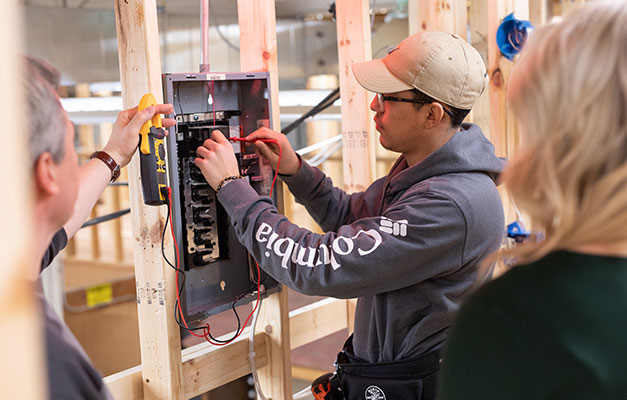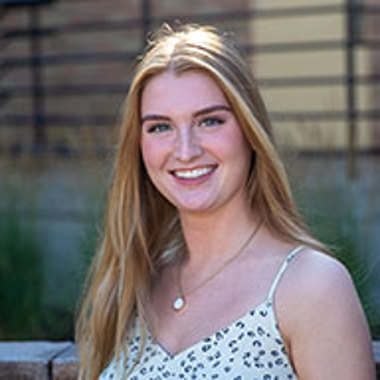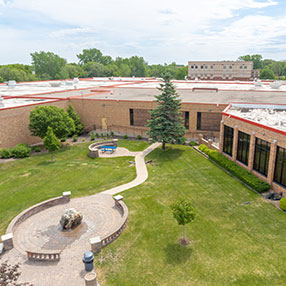The Anoka Technical College Construction Electrician program is designed to develop skills in the installation and testing of electrical fixtures. Students will study wiring, including blueprint reading, wiring code, electrical theory and wiring laboratory. Many graduates of this program join unions to complete their apprenticeship training.
This program currently has a waitlist for fall 2025. Please submit your application to the college and Enrollment Services will email information about the program.

100% Employment upon graduation

High demand compared to other careers in Minnesota

Hands-on training from industry experts
Industry & Career Outlook
Potential Jobs:
- Electrician
Salary Information:
Median Wage: $38.50 per hour
Top Earners: $54.00 per hour
Information provided is for Minnesota. See current data at mn.gov/deed.
Hear from Our Students
Other Program Info
Take a self-guided virtual tour of our campus to see what it's like to be a student at Anoka Tech. View program labs, common student spaces, campus offices and more.
The Construction Electrician Program is approved by the State Board of Electricity, the Twin Cities Joint Apprenticeship Committee, and many unions in the upper Midwest, including: Local 110 (St. Paul), Local 292 (Minneapolis), Local 343 (Mankato), Local 242 (Duluth), Local 294 (Bemidji and Iron Range), Local 1426 (Fargo, East Grand Forks and Grand Forks), and Local 426 (Sioux City, Sioux Falls, Colorado and Kansas).
Info for Current Students
Students must earn a cumulative 2.0 GPA or higher to be eligible for graduation from this program.
The U.S. Department of Education (USDE) has identified the program curriculum as meeting the state education requirements for licensure reciprocity agreements between Minnesota and the states listed below. Therefore, if a student becomes licensed in Minnesota, they can become licensed in those states identified. Additional requirements may exist and include fees, applications or other state specific exams. For those programs where no determination has been made, additional research will need to be completed to make those determinations: https://www.electricianschooledu.org/state-by-state-licensing-guide/.
For questions, please contact Brian Schelkoph
For those states where the USDE identified the program curriculum as meeting the state education requirements for licensure reciprocity agreements between Minnesota and theses states. Therefore, if a student becomes licensed in Minnesota they can become licensed in those states identified (https://www.dli.mn.gov/workers/electrician-or-electrical-installer/electrical-license-reciprocity). Additional requirements may exist and include fees, applications or other state specific exams. For those programs where no determination has been made additional research will need to be completed to make those determinations: (See individual state requirements)
List of states where the program curriculum meets state educational requirements for licensure or certification: Alaska, Arkansas, Colorado, Iowa, Minnesota, Montana, Nebraska, North Dakota, South Dakota and Wyoming.
List of states where the institution has not made a determination: Alabama, Arizona, California, Connecticut, Delaware, Florida, Georgia, Hawaii, Idaho, Indiana, Illinois, Kansas, Kentucky, Louisiana, Maine, Maryland, Massachusetts, Michigan, Missouri, Mississippi, Nevada, New Hampshire, New Jersey, New Mexico, New York, North Carolina, Ohio, Oklahoma, Oregon, Pennsylvania, Puerto Rico, Rhode Island, South Carolina, Tennessee, Texas, Utah, Vermont, Virginia, Washington, West Virginia and Wisconsin.
Start Dates:
Fall semester: August







